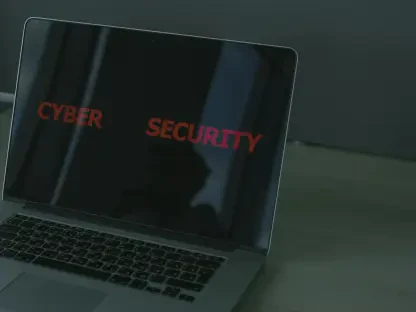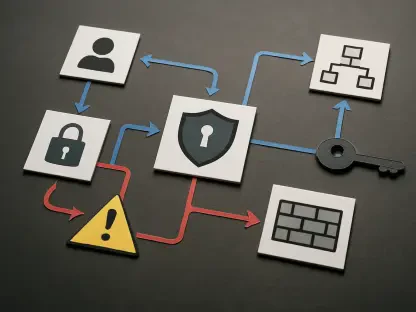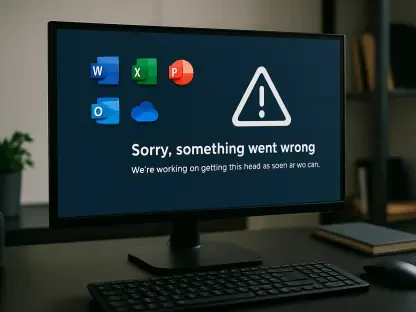The City of Columbus, Ohio, has found itself at the center of significant controversy following a severe data breach caused by a ransomware attack. Initially downplayed by city officials, who stated that the compromised data was either “encrypted or corrupted,” the breach’s true impact was revealed when the Rhysida ransomware gang publicly posted a substantial portion of the stolen information. Security researcher David Leroy Ross, also known as Connor Goodwolf, provided solid evidence that unencrypted personal information was included in the leaked data, contradicting the city’s earlier reassurances.
City’s Initial Response and Downplaying of the Breach
Early Missteps and Misinformation
In July, when the data breach initially occurred, Columbus officials attempted to underplay the severity of the incident. Mayor Andrew Ginther asserted that the compromised data was “encrypted or corrupted,” implying that minimal concern was necessary. However, the Rhysida ransomware gang, which claimed responsibility for the attack, released about 45% of the 6.4 terabytes of stolen data, confirming the gravity of the incident. Ross’s findings contradicted the city’s claims, demonstrating that the leaked information included unencrypted personal data of over 500,000 individuals.
The city’s initial attempts to mislead and minimize the breach’s impact did not stand up to scrutiny, particularly after the ransomware gang’s public posting. This incident highlighted a significant failure in the city’s cybersecurity measures and its initial response. The breach’s early mismanagement not only shook public trust but also drew sharp criticism from the cybersecurity community, pointing to a broader misalignment in the city’s approach to handling such critical incidents.
Litigation and Public Backlash
Instead of addressing the broader issue of the breach itself, the City of Columbus took the unusual step of suing Ross, claiming he had spread stolen information illegally. This legal action sparked widespread concerns within the cybersecurity community. The suit sought damages and injunctions against Ross, leading to intense scrutiny and debate over the city’s responses. Experts from various cybersecurity firms, including Bugcrowd Inc. and Bambenek Consulting Ltd., criticized the city’s approach, describing it as counterproductive.
By targeting Ross, the city arguably made a strategic error. The backlash from this lawsuit underscored a perceived failure by Columbus officials to manage the breach appropriately. Hence, from the perspective of many experts, the lawsuit illustrated a reluctance to confront the real issues at hand, such as safeguarding citizens’ data and working cooperatively with the cybersecurity community. This response could potentially discourage other security researchers from coming forward with discoveries that could be essential for public safety.
Expert Criticism and the Need for Transparency
Cybersecurity Community’s Response
The cybersecurity community’s reaction to Columbus’s handling of the breach has been largely critical. Experts emphasized the importance of transparency and responsible disclosure practices, urging for a more constructive and cooperative approach when dealing with individuals who help identify vulnerabilities. The consensus was clear: suing Ross for bringing valuable information to light was a mistake. This sentiment was echoed by numerous cybersecurity professionals who pointed out that Columbus’s move to litigate could deter other researchers from reporting vulnerabilities, which is vital for improving cybersecurity.
Experts like those from Bugcrowd Inc. and Bambenek Consulting Ltd. stressed the need for maintaining open lines of communication and fostering a collaborative environment between the public and cybersecurity researchers. This collaboration is crucial for ensuring the public’s data is secure and that any vulnerabilities are promptly addressed. Thus, the criticism focused not just on the city’s actions, but also on highlighting a better way forward that involves full disclosure and ethical engagement with the cybersecurity community.
A Call for Improved Breach Response Practices
As scrutiny over Columbus’s handling of the breach grew, the city finally acknowledged in early October that the data theft had indeed transpired, impacting over half a million individuals. This admission marked a significant shift in the city’s stance, prompting the drop of the lawsuit against Ross once he agreed to a permanent injunction restricting his sharing of the data without city approval. The incident underscored the necessity of proper breach management, transparency, and collaboration. Experts argued that the city’s initial secrecy and adversarial posture were counterproductive and highlighted the need for a more progressive approach.
This breach in Columbus serves as a poignant example of the pitfalls associated with trying to downplay and litigate cybersecurity issues instead of addressing them head-on. The broader lesson from this episode is the critical importance of engaging openly and ethically with cybersecurity professionals to build robust and secure systems. Moving forward, the consensus among experts is clear: improved transparency, prompt disclosure, and active cooperation with ethical hackers are essential steps for any entity handling sensitive public data.
Conclusion: Lessons Learned and the Path Forward
The City of Columbus, Ohio, is embroiled in a major controversy following a severe data breach caused by a ransomware attack. Initially, city officials downplayed the incident, claiming the compromised data was either “encrypted or corrupted.” However, the true scope of the breach came to light when the Rhysida ransomware gang publicly posted a significant portion of the stolen data. This leak revealed unencrypted personal information, directly contradicting the city’s earlier statements. Security researcher David Leroy Ross, also known as Connor Goodwolf, provided compelling evidence that the leaked data included unprotected personal details, debunking the city’s reassurances. This incident has raised serious concerns about the city’s cybersecurity measures and transparency. Residents are now questioning the adequacy of the city’s response and the true extent of vulnerabilities within their system. This breach highlights the urgent need for better protective measures and more honest communication from public officials regarding data security.









